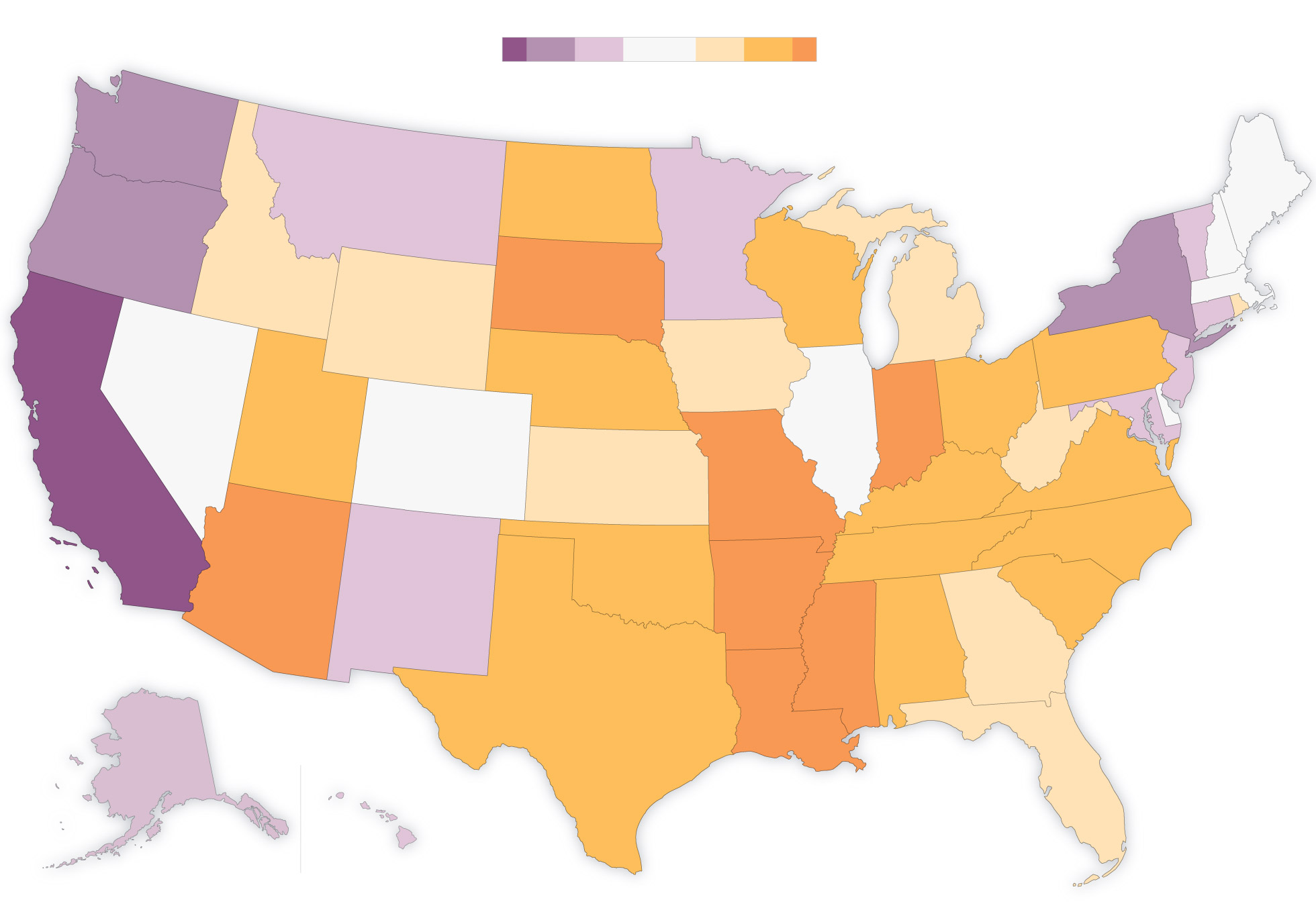State Abortion Laws: The Current Landscape in the United States

What are State Abortion Laws?
State abortion laws are regulations that govern access to abortion within a particular state. They can include waiting periods, bans on certain types of abortion procedures, mandated counseling, and other restrictions. These laws are often influenced by the political climate of the state and can change frequently.
The Current Landscape
As of 2021, 43 states have some form of restriction on abortion. These restrictions range from waiting periods to outright bans on abortion after a certain point in pregnancy. In some states, such as Mississippi and Louisiana, there is only one abortion clinic in the entire state. Other states, like California and New York, have more liberal laws that protect access to abortion.
Restrictions on Abortion
Some of the most common restrictions on abortion include:
- Waiting periods: Many states require women to wait a certain amount of time, often 24-72 hours, between their initial appointment and the procedure itself.
- Parental consent: Some states require minors to obtain parental consent before having an abortion.
- Fetal heartbeat bills: These bills ban abortion after a fetal heartbeat can be detected, which can be as early as six weeks into pregnancy.
- Bans on certain procedures: Some states have banned certain types of abortion procedures, such as dilation and evacuation.
Pros and Cons of State Abortion Laws
There are many arguments for and against state abortion laws. Some believe that these laws protect the rights of the unborn and promote a culture of life. Others argue that they restrict women's access to healthcare and violate their constitutional rights.
Pros
- Protect the rights of the unborn
- Promote a culture of life
- Encourage women to consider alternatives to abortion
Cons
- Restrict access to healthcare
- Violate women's constitutional rights
- Disproportionately affect low-income and minority women
FAQs
Q: Are state abortion laws constitutional?
A: The constitutionality of state abortion laws is a topic of much debate. The Supreme Court has ruled that women have a constitutional right to abortion, but states can regulate that right as long as they do not place an "undue burden" on women seeking an abortion.
Q: Can I still get an abortion if my state has restrictive laws?
A: Yes, but it may be more difficult. If you live in a state with restrictive abortion laws, you may need to travel to another state to obtain an abortion. You can also contact organizations like Planned Parenthood for information and resources.
Q: What should I do if I need an abortion but can't afford it?
A: There are organizations that provide financial assistance for abortion, such as the National Network of Abortion Funds. You can also contact your local Planned Parenthood or other reproductive health clinics for information and resources.
Q: Why are state abortion laws changing so rapidly?
A: The political climate around abortion has become increasingly polarized in recent years, with conservative lawmakers pushing for more restrictions and liberal lawmakers fighting to protect access to abortion. Additionally, the appointment of conservative judges to the Supreme Court has raised concerns about the future of Roe v. Wade.
